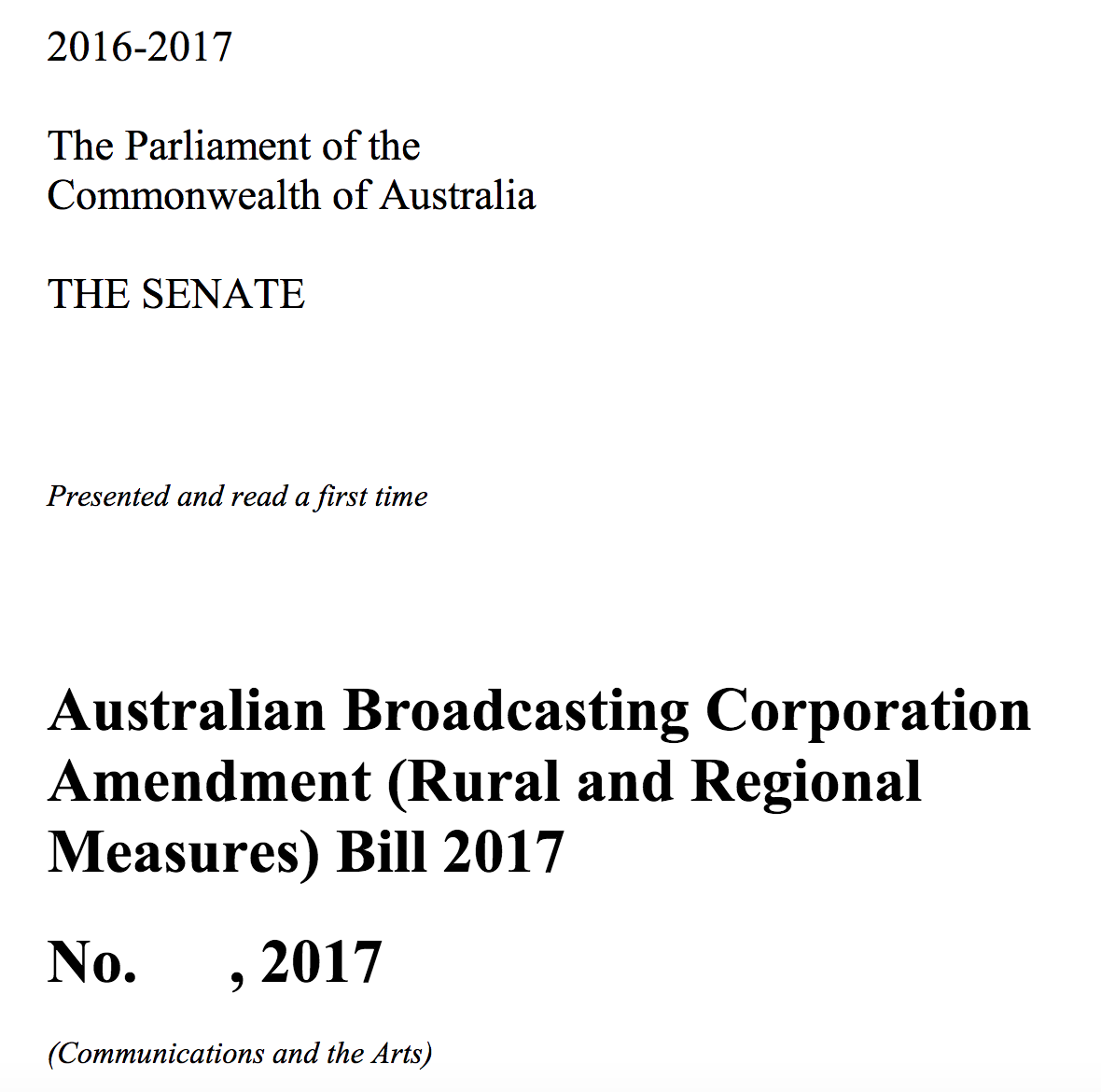The Turnbull Government has introduced legislative amendments to the ABC Act in the Senate to “enhance the ABC’s commitment to rural and regional Australia and require its news services to be fair and balanced.”
The move fulfills the government’s promise to Pauline Hanson in return for her support for the media reform bill.
In a statement released to radioinfo today, a spokesperson for Communications Minister Mitch Fifield, said:
“These amendments will ensure the ABC has an even greater focus on, and regard for, the needs of rural and regional communities.The Bill seeks to legislate what the ABC already expects of itself. The ABC’s own Editorial Policies already cover ‘fair treatment, as well as requiring ‘a balance that follows the weight of evidence’. And the MEAA’s Journalistic Code of Ethics refers to ‘fairness’ no less than six times. The amendments will cement the standards expected by Australian taxpayers.”
The media reform bill passed the Senate a few weeks ago, and is expected to move into the House of Representatives this week.
The Australian Broadcasting Corporation Amendment (Rural and Regional Measures) Bill 2017 will implement reforms outlined in a Private Members Bill introduced by Nationals Senator Bridget McKenzie, which seeks to enshrine a formal commitment to rural and regional Australia in the ABC’s Charter. The Bill also requires the ABC to consult on changes affecting rural and regional audiences, through the establishment of a Regional Advisory Council.
The Bill will also require there be at least two members of the ABC board with a substantial connection to, or substantial experience in, a regional area through business, industry or community involvement. The Bill also introduces greater transparency by requiring a number of additional particulars to be included in its Annual Report.
The Bill will require news and information to be ‘fair’ and ‘balanced’, in addition to the already legislated requirement to be ‘accurate and impartial according to the recognised standards of ‘objective journalism.’
The Bill seeks to legislate what the ABC already expects of itself. The ABC’s own Editorial Policies already cover ‘fair treatment,’ as well as requiring ‘a balance that follows the weight of evidence’. And the MEAA’s Journalistic Code of Ethics refers to ‘fairness’ no less than six times.
Speaking to Fran Kelly on Radio National Breakfast, Communications Minister Fifield said:
All media organisations need to strive to be their best selves. There is no media organisation in Australia that is perfect. Where the ABC differs from the commercial media organisations is that is receives more than a billion dollars a year in taxpayer funding. Now what that means is that the public are entitled to expect a degree of confidence in the way the ABC executes its duties… As you know Fran, the ABC’s Act already requires it to be ‘impartial’ and ‘accurate’ in its news and current affairs presentations. What we’re proposing is that we put alongside that in the Act, the requirement to be ‘fair and balanced’.
KELLY: And what’s the difference, as you mentioned the act there and that’s one of the differences where the ABC is different from other media organisations, we have a charter which says, quote, “gathering and presentation of news and information must be accurate and impartial according to the recognised standards of objective journalism’. So what’s the difference of accurate and impartial and fair and balanced?
FIFIELD: Well, ‘fair and balanced’ is something that is already in chapter four of the ABC’s own editorial policies where it talks about the need to have “fair treatment”, where it talks about a “balance which follows the weight of evidence”. The Media, Entertainment and Arts Alliance own Journalistic Code of Ethics talks about fairness on no less than six occasions. These are well-known journalistic concepts…
Details of the legislative amendments can be seen in details here.


